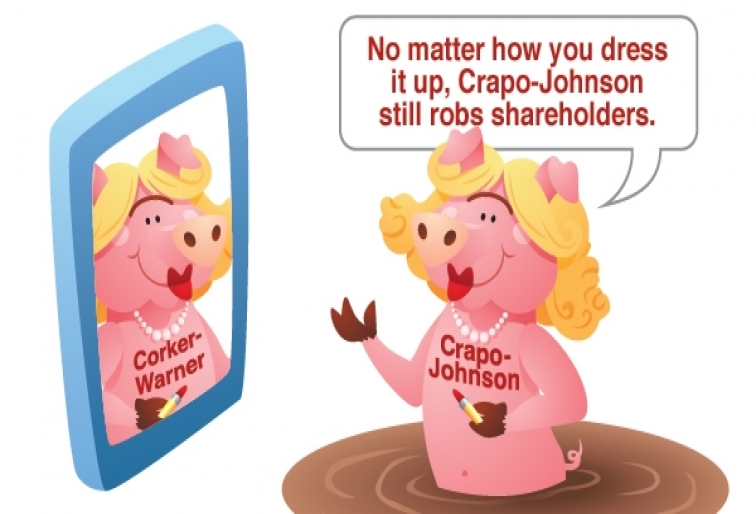Crapo-Johnson Housing “Reform” Bill: More of the Same
The Senate Banking Committee’s chairman and its ranking member – Senators Tim Johnson and Mike Crapo, respectively – released their version of housing finance reform on Sunday. Unfortunately, their bill largely duplicates the problems already found in the proposed Corker-Warner legislation. Both proposals – focusing on Fannie Mae and Freddie Mac, the two behemoth government-sponsored enterprises (GSEs) – have been touted as a bastion of bipartisanship, but both fail miserably at upholding the rule of law or the rights of property owners.
Instead of proposing sensible free-market answers that could benefit taxpayers while adhering to rule of law, the legislation does neither. Rather, it reinforces the Obama Administration’s big-government overreach that disrespects our legal system and the people it seeks to protect. And by creating yet another new federal agency to regulate the mortgage market, Crapo-Johnson uses similar mechanisms that Corker-Warner does. In so doing, it maintains the same market uncertainty that Corker-Warner does, without any guarantee for future investments into the government-backed agency.
Further, the proposal continues to disregard investors’ rights – the community banks, pension funds and individuals that supported Fannie and Freddie, before, during and after the bailout. Under Crapo-Johnson, those investors remain left out in the cold, their savings and retirement in limbo. Meanwhile, taxpayers would remain on the hook because the full faith and credit of the U.S. government would backstop the newly-created entity under Crapo-Johnson.
Since becoming profitable in 2012, Fannie and Freddie have not only made taxpayers whole, they’ve made the government billions of dollars following confiscation by the Treasury Department. Instead of following the rule of law and marketplace standards, Crapo-Johnson would codify that illegal taking and perpetuate the federal government’s dangerous habit of undermining property rights and sowing uncertainty. That’s not what our housing market, or our economy generally, need.
You can try to put lipstick on a pig, but you’re not fooling anyone: Crapo-Johnson is more of the same.


 CFIF Freedom Line Blog RSS Feed
CFIF Freedom Line Blog RSS Feed CFIF on Twitter
CFIF on Twitter CFIF on YouTube
CFIF on YouTube